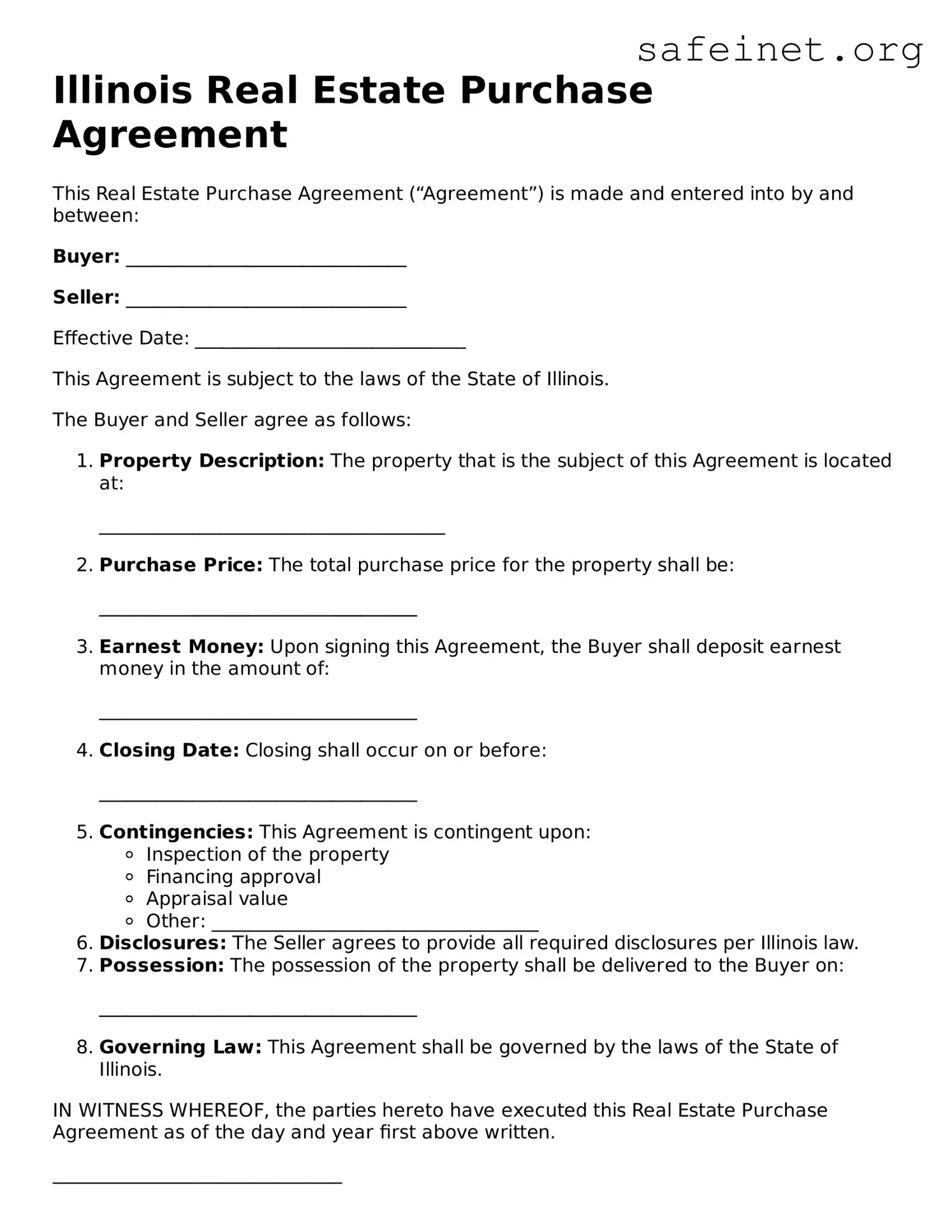The Illinois Residential Lease Agreement is similar to the Real Estate Purchase Agreement but serves a different purpose. While the purchase agreement outlines the terms and conditions for the sale of a property, the lease agreement details the terms under which a tenant can rent the property from the landlord. Both documents are legally binding contracts that require signatures from the involved parties and specify critical details such as duration, payment terms, and responsibilities of each party.
The Illinois Option to Purchase Agreement allows a buyer the right to purchase a property at a later date, akin to a Real Estate Purchase Agreement. This option is particularly advantageous for buyers who need more time to secure financing or evaluate the property. Both agreements contain essential terms such as the purchase price and the timeframe for executing the sale, but the Option to Purchase adds an additional layer of flexibility, making it unique.
A Listing Agreement is an essential document for sellers and real estate agents, reflecting a commitment to market a property for sale. Similar to the Real Estate Purchase Agreement, it outlines specific terms of the transaction. However, the Listing Agreement primarily focuses on the relationship between the seller and the agent, including commissions and marketing efforts, rather than the actual purchase of the property.
The Illinois Seller’s Disclosure Statement is related to the Real Estate Purchase Agreement in that it provides critical information to potential buyers. This document discloses known issues with the property, such as structural problems or environmental hazards. Both documents serve to protect the interests of the buyer, as the disclosure ensures transparency while the purchase agreement solidifies the transaction.
The Illinois Lease with Option to Purchase combines elements from both a lease and a purchase agreement, creating a unique arrangement. It allows tenants to rent a property while having the opportunity to purchase it later. This document is similar to the Real Estate Purchase Agreement because it includes terms for the sale but also addresses rental conditions, giving tenants a chance to transition to homeownership.
The Illinois Buyer’s Agency Agreement establishes the relationship between the buyer and real estate agent, similarly emphasizing the commitment to facilitate a property transaction. Both agreements detail responsibilities and expectations of the involved parties. However, while the Buyer’s Agency Agreement represents the representation aspect of the process, the Real Estate Purchase Agreement finalizes the purchase transaction.
The Illinois Purchase and Sale Agreement used in commercial real estate serves a purpose similar to the Real Estate Purchase Agreement but is tailored for business properties. This type of agreement includes specific terms related to commercial transactions, such as zoning and facility usage, reflecting the different considerations of commercial dealings compared to residential real estate. Both documents serve as the foundation for legal purchasing activities in their respective fields.
The Illinois Counter Offer is a response to an original offer within the realms of real estate transactions, showcasing negotiation. It is similar to the Real Estate Purchase Agreement in that it modifies specific terms—such as price, closing date, or contingencies—before an agreement is finalized. This adjustment process is critical to reaching mutually acceptable terms that can then be finalized into a purchase agreement.
The Illinois Purchase Agreement Addendum expands upon the initial Real Estate Purchase Agreement by adding additional terms or conditions to the sale. This document is crucial when specific situations arise during the transaction, such as repairs or special financing arrangements. Both agreements work together to provide a comprehensive understanding of the deal being struck.
